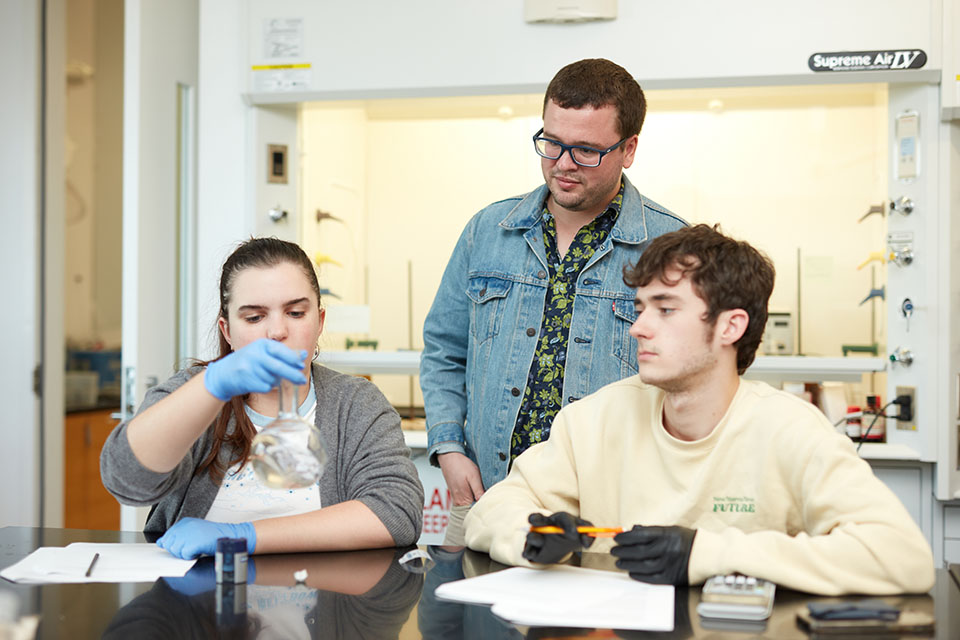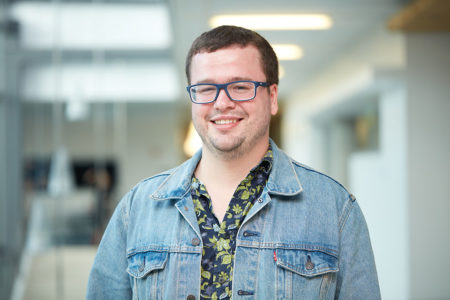
Jonathan Ryan Hunt’s journey to becoming a chemist was somewhat circuitous. Hunt entered Centre College, a small liberal arts school in Danville, Kentucky, as a chemistry major, but after his initial coursework he began to experience second thoughts.
“Most people think of chemists as people who are in the lab, making stuff,” Hunt explains. “That’s really important, but it wasn’t for me. I’m much more interested in what kind of calculations I can do. It wasn’t until I got to take physical chemistry as a senior that I said, ‘Oh, this is why I studied chemistry.’”
Rather than making substances in the lab, Hunt, who is an assistant professor of chemistry and biochemistry in Loyola Marymount University’s Frank R. Seaver College of Science and Engineering, studies the molecules created by other chemists, applying the principles of math and physics. “Sometimes I feel like I’m a closeted physicist, pretending to be a chemist,” he quips.

After graduating from Centre, Hunt earned his Ph.D. in physical chemistry from USC, where he employed ultrafast spectroscopic methods to study the kinetics of excited-state proton- and electron-transfer reactions; most recently he was a lecturer of thermodynamics at UCLA. Hunt is particularly interested in so-called photobase molecules — molecules that, when hit with the right wavelength of light, can control the pH of solutions, a phenomenon with significant implications for green hydrogen production and other environmentally friendly forms of energy.
The positive interactions Hunt experienced with his professors at Centre College made such a positive impression that he was determined to one day teach at the undergraduate level himself. “They were doing their own research, but were also highly committed to ensuring that we got the best education, both in and out of the classroom,” Hunt says. “LMU, as a small, teaching-focused school where I can pursue my research but also have a primary focus on honing my skills as a lecturer and adviser, is a dream job.”
When he’s not teaching or engaged in research, Hunt enjoys singing karaoke and reading mystery novels. “My ultimate dream is to write my own — I’m plotting it now,” he says. He also loves to cook, and has thought about teaching a course on the chemistry of cooking. As a self-professed “coffee snob,” he has also entertained the possibility of developing a course on the chemistry of coffee.
For Hunt, nothing is more rewarding than witnessing the excitement of students as they learn new concepts. “I can remember at one of my first lectures, asking my students to determine the volume of a molecule with vague instructions,” he says. “Seeing them develop before my eyes as they figured that out on their own was the most satisfying feeling.”







